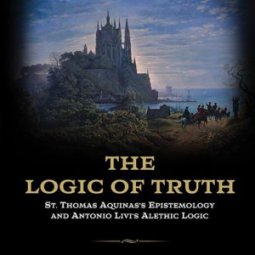The Logic of Truth is a synthetic study of Livi’s alethic logic in the light of the epistemology of St. Thomas Aquinas. Antonio Livi, a disciple of the French philosopher Étienne Gilson, has already received favorable reviews internationally from philosophers such as Francis Jacques, Evandro Agazzi, Ralph McInerny, Enrico Berti, Georges Cottier, Umberto Galeazzi, Dario Sacchi, Pier Paolo Ottonello, Maria Adelaide Raschini, Walter Redmond, Robert Trundle, Battista Mondin, Juan José Sanguineti, and Antonio Millán-Puelles. Livi’s alethic logic, by revealing the natural and incontrovertible fundamental certainties intrinsic to human knowledge, shows that concepts and judgments originate in man’s direct grasp of reality. Thus, he demonstrates the validity of immediate realism as the sine qua non theory of cognition for all scientific, philosophical, theological, and everyday certainties. Livi achieves this by an original method composed mainly from elements of the Anglo-American school of analytic philosophy. The outcome is an effective unfolding of the incoherence of the epistemologies underlying Cartesian, Kantian and Hegelian philosophies and their offshoots, notably the anti-realist Kantian-Thomistic philosophy of Transcendental “Thomism”. The Logic of Truth by scrutinizing Livi’s alethic logic through the lens of St. Thomas’s theory of knowledge, exposes both the coherence of Livi’s theory of logical truth with St. Thomas’s metaphysical epistemology as well as the unsurpassed sophisticated complexity of the latter’s probing of man’s capacity for truth. William J. Slattery, ordained to the priesthood in St. Peter’s Basilica by Saint John Paul II in 1991, received the Ph. D in philosophy from the Pontifical Gregorian University and the S. T. L. in theology from the Pontifical Lateran University. His historical work on the civilizational role of priests during the Dark Ages, Heroism and Genius: How Catholic Priests built Western Civilization, will be published in the United States by Ignatius Press in 2016.
































